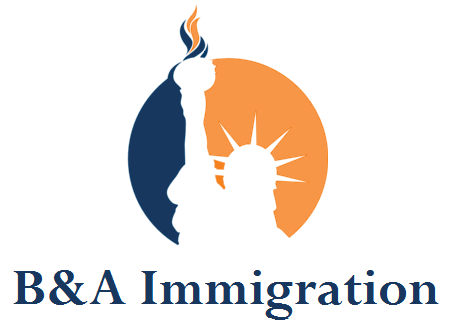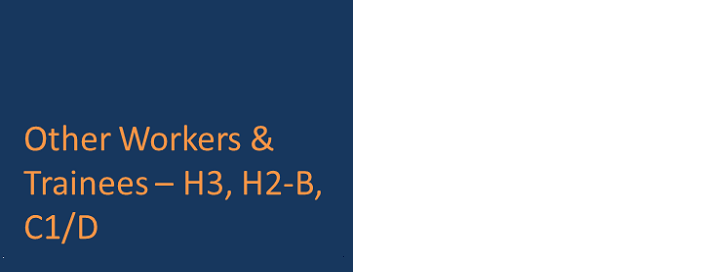Where an individual seeks to enter the U.S. in order to receive training from an employer in any field other than the graduate medical education or training, they may be eligible to receive an H-3 Trainee visa. If a person seeks temporary skilled or unskilled seasonal work in which there is a shortage of U.S. workers, they may be eligible for an H2-B visa. Crew members of international airlines and those required for the normal operation and service of a vessel may be eligible for C-1 or D Crew visas.
H-3 Visa Eligibility
- Excludes medical education or training;
- The training cannot be used to provide productive employment and cannot be available in the individual's home country;
- The employer must obtain approval for the training first with USCIS.
H2-B Eligibility
- Temporary and seasonal;
- A shortage of U.S. workers;
- Prospective employers must obtain a labor certification from the department of labor confirming that there are no qualified U.S. workers eligible for employment on which the petition is based.
C1/D Crew Visas
In determining who qualifies for a crew visa, the individual's responsibilities and activities on the vessel are considered. The most commonly issued visas are for crew members of cruise liners, including, but not limited to, beauticians, entertainers and lifeguards.
Please note that if the individual will be working on a private yacht sailing into U.S. waters for more than 29 days, a B-1 visa is required. An H-2 or B-1 visa may also be needed for work on a vessel in dry dock.
If the individual wishes to remain in the U.S. as a tourist after their employment, they must apply for a B-2 visitor visa as well, unless the cruise liner participates in the visa waiver program. This should be checked with the cruise liner prior to traveling.
E-3 Visa for Australian Specialty Occupation
The E-3 visa classification applies only to nationals of Australia as well as their spouses and children. E-3 principal applicants must be going to the United States solely to work in a specialty occupation. The spouse and children need not be Australian citizens.
Eligibility:
- E-3 visas are only available for Australian nationals. An Australian passport is required;
- The definition of “specialty occupation” is one that requires:
- A theoretical and practical application of a body of specialized knowledge; and
- The attainment of a bachelor’s or higher degree in the specific specialty (or its equivalent) as a minimum for entry into the occupation in the United States.
- U.S. Code of Federal Regulations, 8 CFR 214.2(h)(4)(iii)(D), describes the kind and amount of experience which can be used to establish the equivalency of a university degree. As a guide, three years of professional experience may generally be used as a substitute for each year of university-level education.

